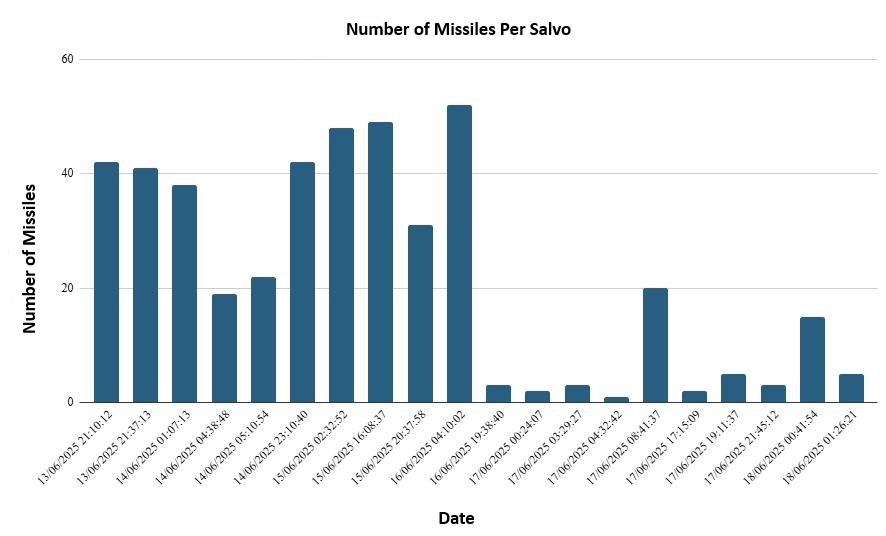18JUN2025 This graphic from @Doron_Kadosh, an Israeli Army Radio correspondent, supports some of what we @criticalthreats and
@TheStudyofWar have been assessing: Iran may have suffered significant losses among its med-range ballistic missile launchers.

It is possible (and not mutually exclusive with the above) that Iran is shooting smaller salvos to minimize the number of launchers Israeli aircraft can find and destroy. Reminder: Iran fired at least a hundred missiles at once back in October 2024, and given the far more serious threat they now face (a threat to the regime itself), it is more likely that Iran is unable to fire large amounts of missiles rather than unwilling to do so.
https://x.com/brian_cartr/status/1935392563088798008
Iran Update, September 5, 2025
Iran continued meeting with European officials and the International Atomic Energy Agency (IAEA) after the E3 (the United Kingdom, France, and Germany) triggered the snapback process, but Iranian officials show no indication that they will concede to E3 demands regarding the Iranian nuclear program. The E3 triggered the 30-day snapback process to reimpose UN Security Council sanctions on Iran on August 28.[1] The E3 previously told Iran that they would delay the reimposition of UN sanctions by up to six months if Iran met three key conditions, which include restoring the IAEA’s access to Iranian nuclear facilities, addressing concerns about Iran’s stockpile of enriched uranium, and engaging in direct talks with the United States.[2] Foreign Affairs Minister Abbas Araghchi met with European Union Foreign Policy Chief Kaja Kallas on September 4 in Qatar to discuss Iran’s stockpile of highly enriched uranium (HEU) and the resumption of IAEA access to Iran’s nuclear sites.[3] A Wall Street Journal reporter stated on September 4 that the talks produced no progress, and neither side shifted its stance during the talks.[4] Iran and the IAEA are expected to meet in Vienna on September 5.[5] Iranian Ambassador to the United Nations (UN) in Vienna, Reza Najafi, stated on September 5 that the discussions will define cooperation under Iran’s parliamentary law and establish the “new form of cooperation” with the agency.[6] The Iranian parliament passed a bill on June 25 that suspended all cooperation with the IAEA.[7] Iran recently allowed IAEA inspectors to return to Iran to monitor fuel replacement at the Bushehr Nuclear Power Plant (BNPP), but has barred them from accessing or inspecting damaged nuclear sites.[8]
https://understandingwar.org/research/middle-east/iran-update-september-5-2025/
